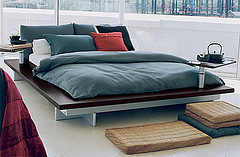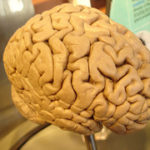 If you have an anxiety disorder chances are that you have trouble sleeping sometimes or maybe all the time. This is because if you have insomnia you are predisposed to developing anxiety and depression and vice versa. As we all know insomnia is a sleep disorder characterized by your inability to fall asleep and or stay asleep. Learning to cope with insomnia is important for your long term health and does not necessarily require that you pop pills to fall into a soporific sleep state.
If you have an anxiety disorder chances are that you have trouble sleeping sometimes or maybe all the time. This is because if you have insomnia you are predisposed to developing anxiety and depression and vice versa. As we all know insomnia is a sleep disorder characterized by your inability to fall asleep and or stay asleep. Learning to cope with insomnia is important for your long term health and does not necessarily require that you pop pills to fall into a soporific sleep state.
Whether you have an anxiety disorder or not all people deal with insomnia at some point in their lives. But when you have an anxiety disorder insomnia can be a persistent and very unwanted part of your nightly routine. Especially because at 3 am you are probably fully awake and worried about what could be wrong with you. When you have intense anxiety about anything the last thing you need is to be sitting up in the dark pondering the huge what if questions that constantly materialize in your mind. So what can you do to relieve your insomnia?
Apparently many Americans feel that prescription sleep aids are the solution. This is proven by the nearly 4 billion dollars (with a B) that Americans spend every year on various sleep aides. But there are other ways to catch those Z’s. I always promote natural remedies because ultimately drugs are a band aid that may cause more trouble then they are worth. In today’s society doctors and other health care providers are way to eager to pass out drugs as if they were m & m’s and as a result there is a whole generation of people addicted to this or that when they could use other means to achieve better health. Don’t get me wrong sometimes you have to use medication, but they should not be your first option when it comes to insomnia.
Nowadays you will find that more and more sleep therapist are prescribing cognitive behavioral therapy or CBT as a tool to get you to sleep better. For starters many experts suggest that you use your bedroom for only two things, sleeping and making love. Some sleep therapist believe that by limiting what you do in your bedroom you are effectively re-training your brain to associate the bedroom with only those two acts. People do way too much in their rooms and a lot of times sleeping is not one of them. You have to redefine how you see your bedroom and not watch t.v. or play Nintendo when you are in there.
Moreover you should go to bed and wake up at the same time everyday. If you wake up during the night go have a sit in the living room until you get sleepy again. Do not jump on the internet and turn your brain on to something it won’t let go of until 6 am. In addition when you do under sleep don’t try to sneak in naps or ginormous amounts of caffeine into your system during the day. This will help you to get real tired and hopefully ready for some hardcore sleeping later that night.
Remember that your brain needs to rest. With all your anxious thoughts zooming around your head all day you seriously should give your grey matter some down time. If you skip out on good sleep then you can agitate your anxiety symptoms and become highly irritable and unpleasant. Whether it’s reading or exercise, do all you can in your efforts to sleep right. If you have chronic insomnia try a tandem approach that incorporates self help and your doctors advise. Chances are if you double team the sleep demons than you can achieve more success in the sleep slash boom boom room.
Here is Anxiety Guru’s Top 10 Sleep Aides.
1. Only sleep and make love in your bedroom.
2. Try Cognitive behavioral therapy to help you re-train your mind when it comes to sleeping.
3. Try to avoid prescription drugs.
4. When you can’t sleep get out of your bed and go sit down in another room until you get sleepy again.
5. If you do wake up refrain from doing complicated brain work.
6. Try exercise to help bring on a little tiredness.
7. Use self help programs.
8. Make sure that your sleeping chambers are up to snuff – comfy and just the right temperature.
9. Go to bed and wake up everyday at the same time.
10. Always consult with a doctor about your insomnia and your plan of action.





I would like to thank the author of this article, which is posted on this blog. Where the author has produced such an valuable information which can be helpful to many suffering from such disorders.
Thank you Henry for your appreciation it means a lot to me to be able to help others. Hopefully you found this post useful and I really hope you can get some sleep soon.